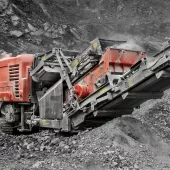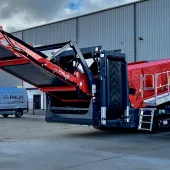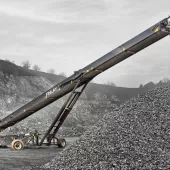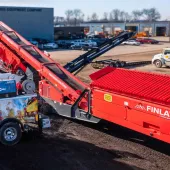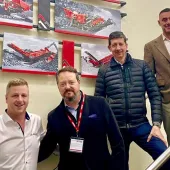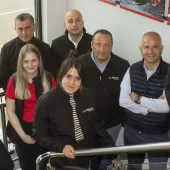Terex Finlay launch new 693+ Spaleck 3D flip-flow screen
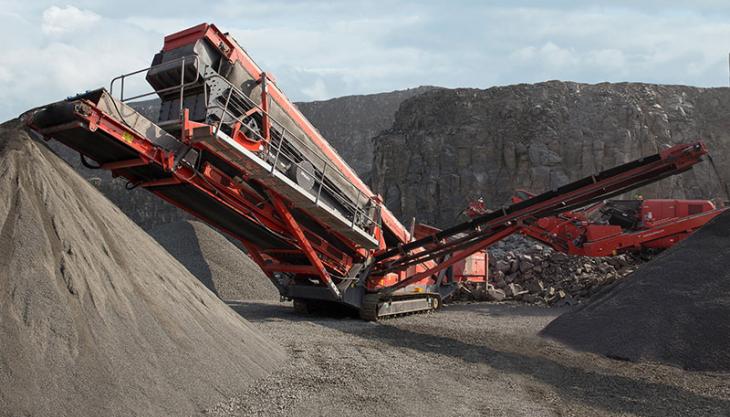
The new Terex Finlay 693+ Spaleck is the result of a joint partnership between Terex Finlay, pioneers in mobile tracked processing equipment and Spaleck, the market leaders in static recycling screening technology.
At the heart of the mobile plant is the two-deck German-designed and constructed high-performance screenbox. The innovative screenbox, combined with state-of-the-art flip-flow technology on both the top and bottom decks, is said to place the Terex Finlay 693+ Spaleck into a class of its own.
The screen mats on both the top and bottom deck flip-flow screens are fastened without screws and have no edges that could cause difficulties and snagging. This allows the screen mats to be changed quickly and there is an optimal product flow over the screen mats at all times. Even large-grained material can be screened on a screening machine with a flip-flow screen deck.
According to Terex Finlay, the 693+ Spaleck’s processing capabilities and application flexibility mean the machine is capable of processing and separating a wide range of materials including: recycling materials, such as incineration slag, shredder light and heavy fraction, scrap metal, electronic scrap, C&D, C&I, bulky waste, compost, plastic fractions, biomass, topsoil, ore, and aggregates.
Key features include:
- Highly flexible, adaptable and capable of operating with ease in wet, moist, sticky, dry, mixed recycling, virgin ore and aggregate materials.
- Dynamic wear-resistant screening mats ensure an efficient material flow.
- High acceleration forces of the screening mats ensures accurate screening and creates a self-cleaning effect preventing blinding of the screening mats.
- The flip-flow screen with screwless mounted screen mats avoids unnecessary cleaning and reduces maintenance times.


